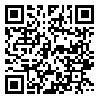BibTeX | RIS | EndNote | Medlars | ProCite | Reference Manager | RefWorks
Send citation to:
URL: http://hayat.tums.ac.ir/article-1-1119-en.html
Ethnography is a qualitative research method in which researchers study various values, beliefs and cultural meanings in a group of people or society. Critical ethnography puts more emphasis on social groups and individuals' power, prestige, authority and status (1). In ethnographic studies, researchers employing inductive logic focus on interactions between people to discover the meaning embedded in culture. Critical approach attracts researchers’ attention towards individuals who play a minor role in social interactions (2). Madison quoting Thomas contends that critical ethnography is a classic ethnography with a political aim. The ethnographer not only explains the meanings of interaction in a specific context, but also strives to know how these meanings are described against the broad structure of power (3). Thus, critical ethnography involves all the fields in which interactions are influenced by power relations. Critical ethnography plays an essential role in health research and nursing, in particular. Most of the nurses are female and power relations are one of many factors that affect the complex doctor-nurse and nurse-patient interactions (4).
| Rights and permissions | |
 |
This work is licensed under a Creative Commons Attribution-NonCommercial 4.0 International License. |





